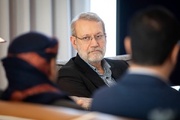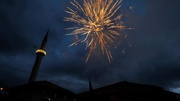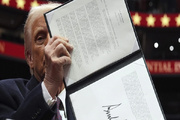Current President Abdelaziz Bouteflika, former Prime Minister Ali Benflis, and Saad Abdallah Djaballah, the leader of the National Reform Front, are considered to be the top contenders.
Although 40 hopefuls registered their names for the presidential election, the Algerian Electoral Supervisory Committee only approved the qualifications of six candidates, evoking protests by several political parties.
In fact, this election is considered to be the most important election in
However, after the FIS won the first round of the national parliamentary elections in December 1991, the government cancelled the second round of the elections in January 1992 which the FIS was poised to win. This led to a conflict between the army and the FIS which has left over 100,000 dead.
Bouteflika has a good chance of victory due to his balanced performance as president during the last five years and his relative success in decreasing the level of hostilities in the internal conflict.
The 67-year-old Bouteflika, who is one of the oldest veterans of
In his reelection campaign, Bouteflika succeeded in winning the support of the faction of the disbanded FIS led by Ali Belhadj and Rabeh Kebir, the National Democratic Assembly headed by former Prime Minister Ahmad Yahya, the Friendly Society Movement under the leadership of Abu Jurrah Sultani, and the FLN reformist movement headed by
There are four influential groups which will probably play a determining role in the election.
The first group includes the elites and technocrats that occupy most government posts. This group has the most influence in all Algerian elections.
The next group is comprised of influential army generals, who play a balancing role in society. This group led the suppression of the Algerian Islamists in the early 1990s.
The third group includes Islamists that have great influence in society despite the fact that they do not hold government positions.
And the last group consists of
Bouteflika’s other two rivals, 54-year-old Benflis and 48-year-old Djaballah, whose National Reform Front tends to lean toward the Islamists, each represent certain constituencies in
Benflis, the secretary general of the FLN, is supported by the banned but still influential Justice Party led by Ahmad Taleb Al-Ebrahimi.
The close competition between Benflis and Bouteflika might require a second round of elections.
Djaballah is also supported by the faction of FIS led by Abbasi Madani and by some members of the Justice Party.
Despite the close electoral competition it seems that the winner will face a difficult challenge in the future.
HL/HG
End
MNA























Your Comment